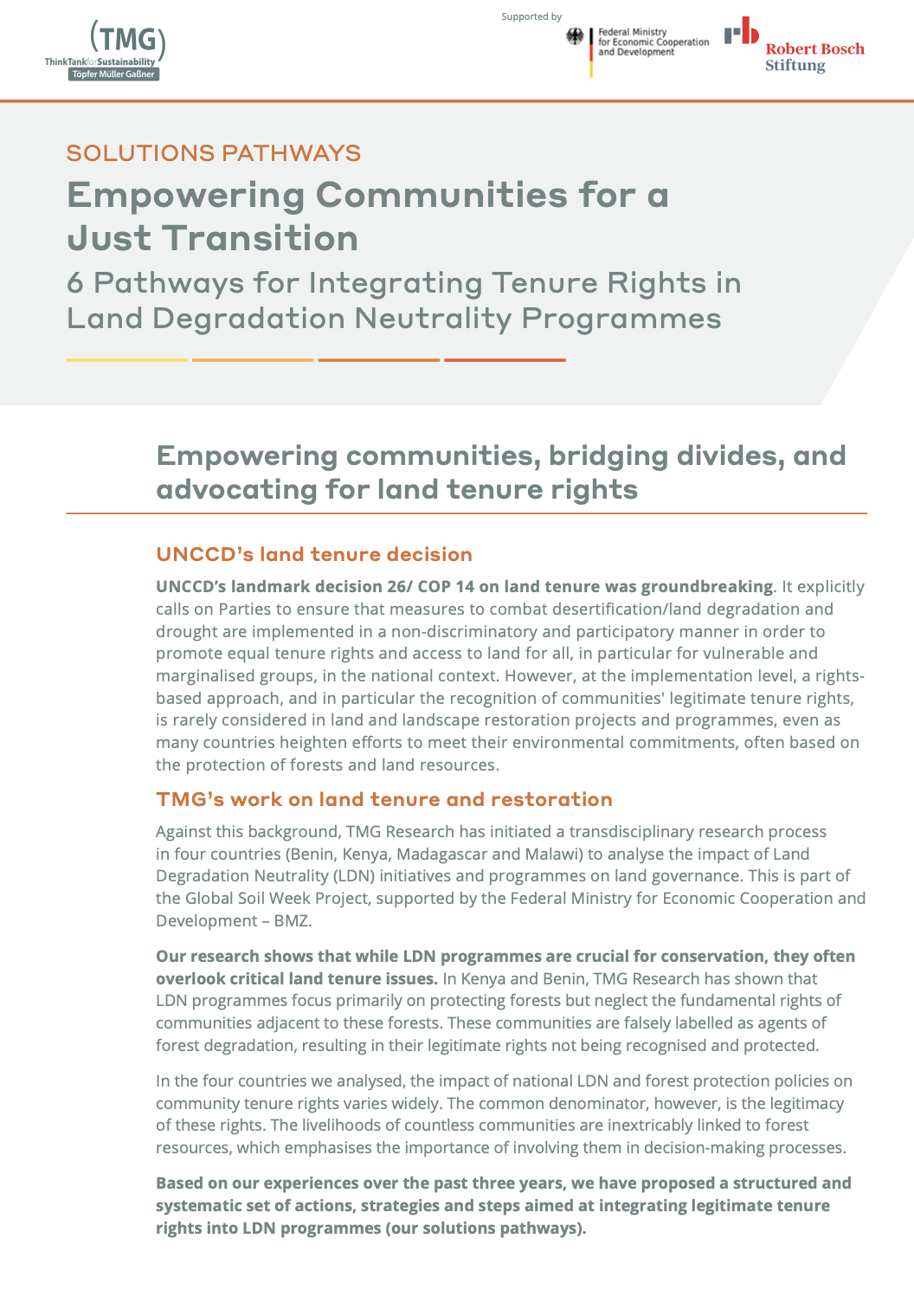How Securing Land Rights Can Contribute to Increased Resilience, Soil Restoration, and More Sustainable Land Use
In many African countries, insecure land rights spark conflicts with governments in global environmental programmes. TMG Research's workshop addressed challenges, proposed solutions, and created a roadmap for the crucial year of 2024.
by TMG Land Governance Team | 2023-12-20

Much remains to be done to ensure that environmental projects not only protect the environment, but also the rights of local people in the long term. Participants at the Regional Exchange Workshop, organised in Nairobi at the beginning of November, recognised the importance of land rights for implementing the climate agenda and call for the integration of legitimate tenure rights in these projects. Participants travelled from Niger, Togo, Benin, Zambia, Malawi, Kenya and Madagascar to discuss and develop a joint strategy for mainstreaming legitimate tenure rights in the land restoration and forest protection agenda. The meeting was organised by TMG Research and supported by the Robert Bosch Foundation. Hailing from diverse backgrounds in politics, academia and civil society organisations, they share a collective goal of ensuring that future international regulations are implemented on the ground in the best interest of the people and the environment.
Environmental Agreements and Land Rights
During the 1992 UN Conference on Environment and Development in Rio de Janeiro, the member states of the United Nations agreed on the three Conventions on climate change, biodiversity and desertification. The Conventions are binding under international law. According to the United Nations, 100 million hectares of healthy land are still destroyed worldwide every year due to deforestation, soil depletion and extreme climate phenomena. This highlights the crucial need for joint action. One of the goals of the United Nations Convention to Combat Desertification (UNCCD) is "land degradation neutrality" (LDN), i.e. the restoration of at least as much land as is destroyed.
Tenure Security and Land Rights: The missing piece in environmental agreements and policies
Lucy Wambui Ng'ang'a from the Kenyan Ministry of Environment emphasises: "Land is the linchpin of climate initiatives. Land rights must be precisely defined so that land rights are secured when measures are implemented. Only then can the measures be sustainable." The UNCCD Decision on Land Tenure (Decision 26/COP.14) from 2019 can help to secure land rights in the context of climate action. So far, the UNCCD resolutions on land tenure are the only international agreements that link the global standard for responsible land governance (VGGT) to one of the Rio Conventions. States Parties have adopted UNCCD Decision 26/COP 14 and Decision 12/COP 15, which explicitly call to “promote women’s and vulnerable populations’ equitable access to and control over land and resources, including secure and non-discriminatory land tenure” in order to achieve land degradation neutrality. The Decisions should be used to shape a just transition to a green future.
With the emergence of debates on carbon offsets and carbon credits in the context of the broader climate debate, the issue of land rights is more important than ever, points out Glory Lueong of FIAN International, an organisation that campaigns for the right to food security. "Land use, land restoration and the carbon market form a triangle that can potentially exacerbate injustice and violence, as can already be seen in many countries in Africa," says Ms Lueong. Similarly, many participants shared examples and expressed significant concerns about hastily concluded land deals related to the emerging carbon credit markets. Many fear that these contracts are solely for the purpose of offsetting CO2 emissions from industries in Europe or Arab countries in the future, disregarding the legitimate tenure rights of dependent communities, particularly women, youth and pastoralist communities.
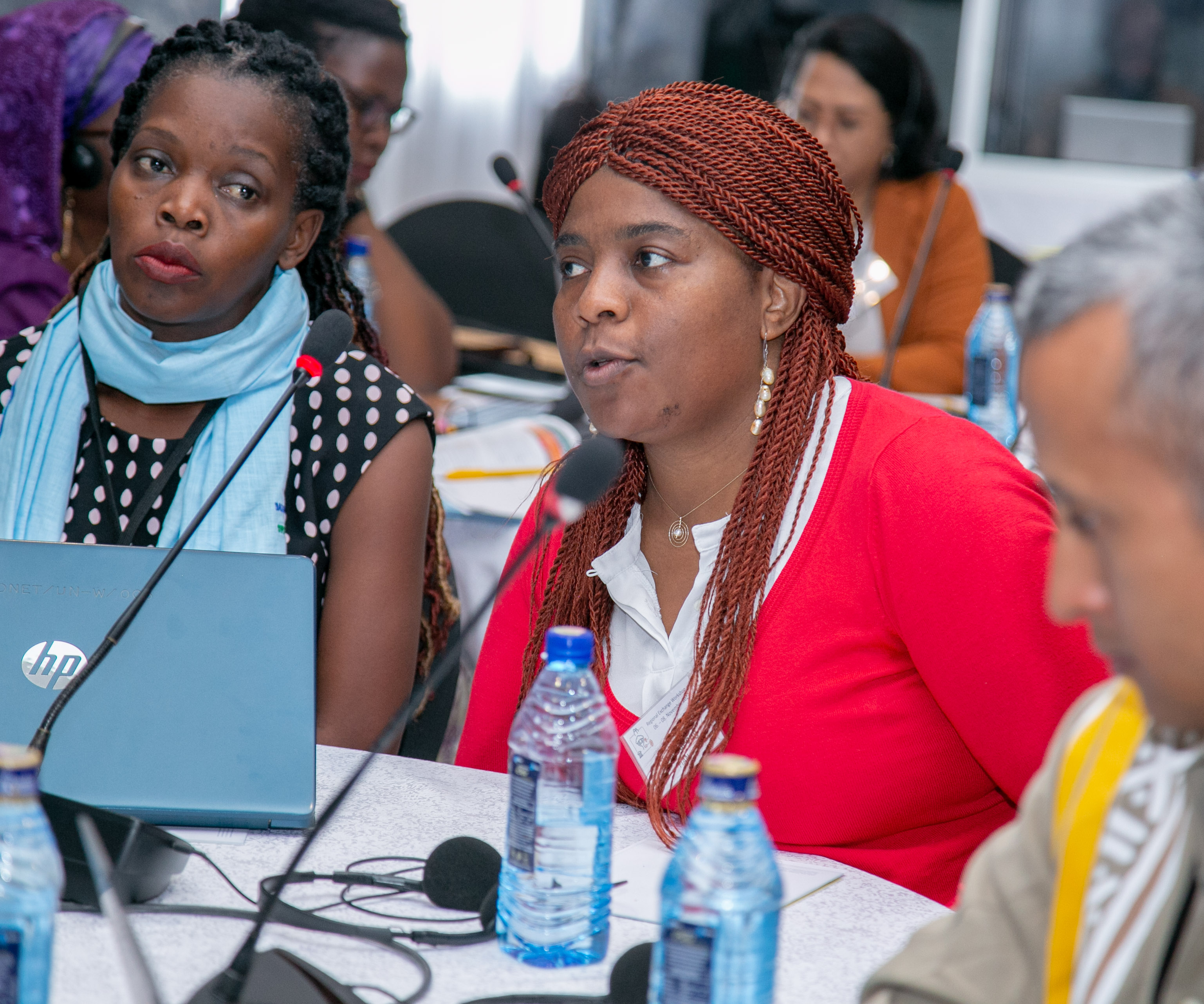
Glory Lueong of FIAN International Photo Credit: Dennis Mairu, Anchor Bay
Dialogue and Informed Data are Key to Sustainable Land Restoration
For sustainable land restoration to become a reality, it is essential to prioritise and promote dialogue. This means fostering communication not only between governments and civil society organisations, but also between governments and local communities. This sentiment was emphasised by Harifidy Rakoto Ratsimba, Director of the Land, Landscape and Development Lab (LLANDEV), TMG Research’s partner in Madagascar. "We need to build more bridges and make the voices of the population heard through our studies." Mr Ratsimba hopes that the results of TMG and LLANDEV's joint research project will stimulate and support direct cooperation between the land authorities and the local population with regard to measures and programmes to safeguard the land.
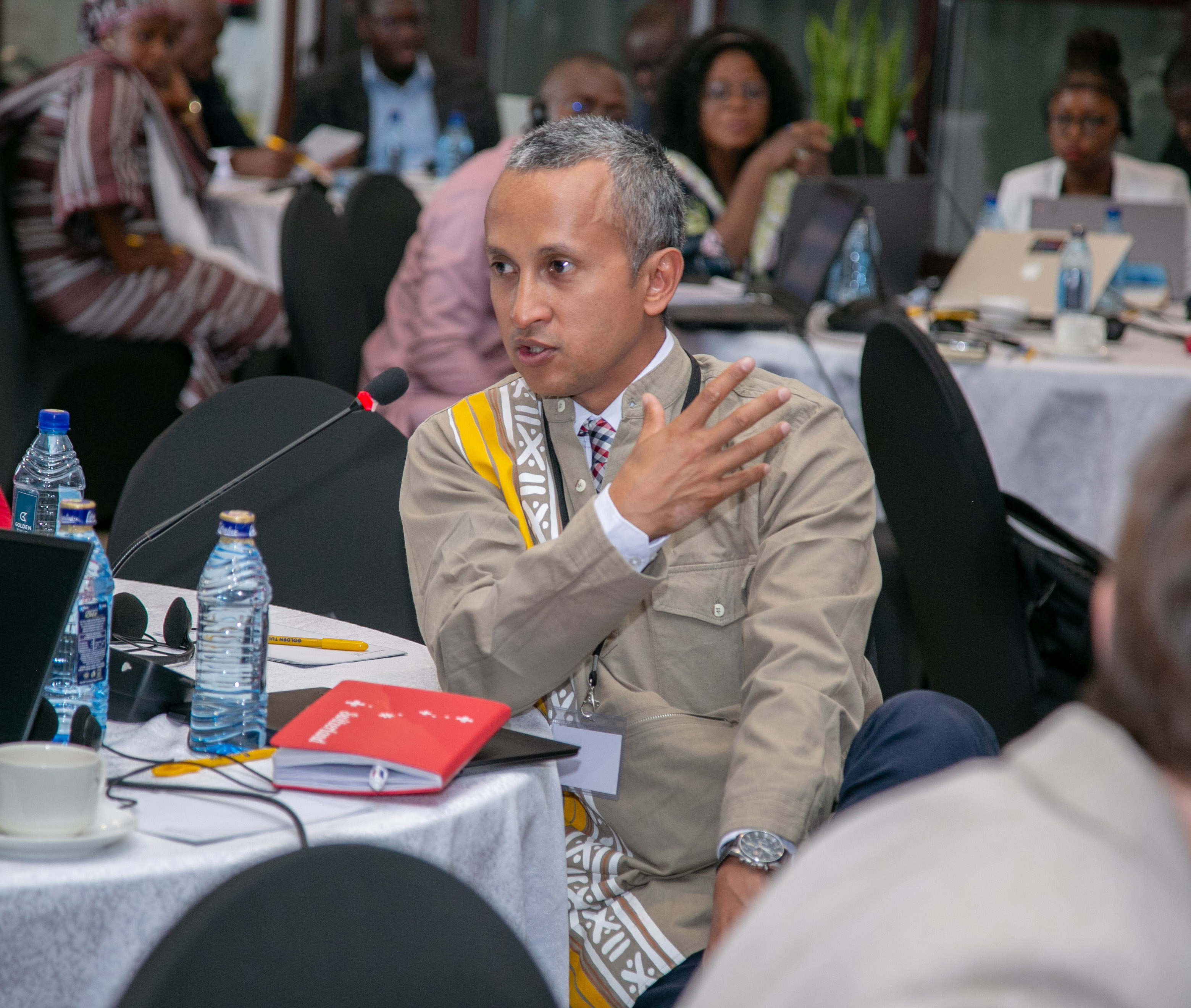
Harifidy Rakoto Ratsimba. LLANDEV, Madagascar Photo Credit: Dennis Mairu, Anchor Bay
The Courage to Hold Government Accountable
Policy misalignment and poor implementation of existing frameworks, developed to support the climate and land restoration agenda, can lead to mistrust and conflict, jeopardising both development and conservation efforts. A recent example from Kenya illustrates the challenges faced by the Ogiek ethnic group who are being displaced from forest areas designated as protected areas. Lucy Ng'ang'a points out that the conflicts are fuelled by misalignment between the government and NGOs. She emphasises the imperative for collaborative efforts to jointly develop solutions that preserve and protect the forest while simultaneously safeguarding the livelihoods of the community. "Only when land rights are clearly defined, protected and secured can the resolutions of the three Rio Conventions be meaningfully implemented," says Ms Ng'ang'a.
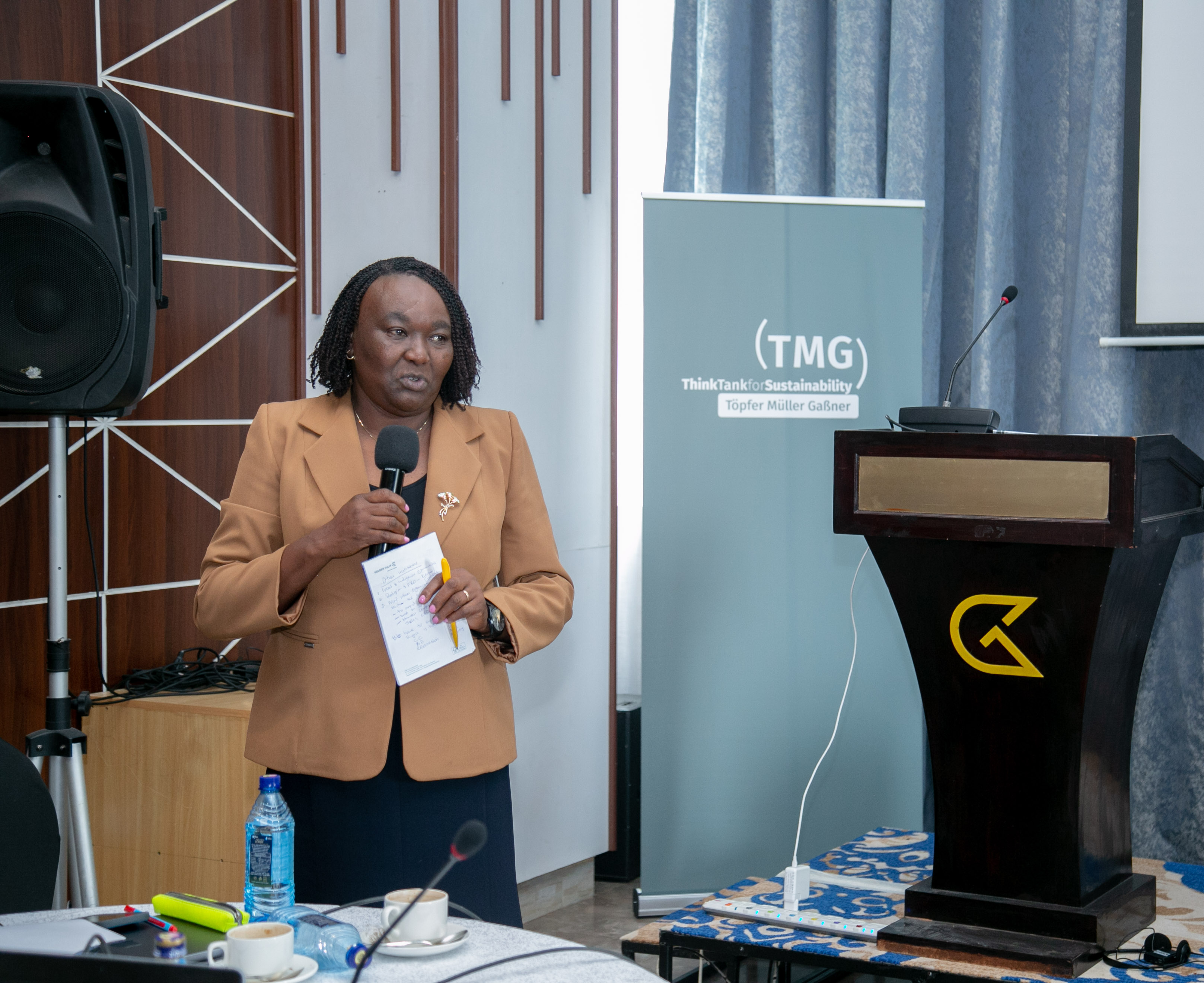
Dr. Lucy Ng'ang'a, Ministry of Environment, Climate Change and Forestry, Kenya Photo Credit: Dennis Mairu, Anchor Bay
In Niger, Maimouna Abdou from the organisation AREN is actively campaigning to secure and protect the rights of nomadic pastoralists. She emphasised the need to respect the rights of pastoralist communities so that they can live and pursue their activities, even if they are not permanently settled. She called for their grazing land to be respected and protected, as well as their right to mobility, which is crucial for access to water resources. In Niger, Mrs Abdou explained, there are already good laws in place. The goal now is to ensure their effective implementation. She also emphasised that it is difficult to recognise and protect women's land rights in environmental projects and that a gender-sensitive approach is needed in land restoration projects.
Maimouna Abdou, AREN, Niger, Foto Credit: Birte Mensing
Solution Pathways to mainstream legitimate tenure rights: Lessons learnt from TMG research in four African countries
As part of the "Global Soil Week" project funded by the German Federal Ministry for Economic Cooperation and Development (BMZ), TMG Research initiated a research project to document and monitor the implementation of UNCCD Decision 26/COP 14 on land tenure. Based on research findings and lessons learnt from Malawi, Kenya, Benin and Madagascar, TMG Research proposes an actionable approach to meaningfully integrate legitimate tenure rights into land restoration policies and programmes. It consists of six interlinked steps, referred to as solution pathways: 1. analysing and identifying land tenure issues in LDN programmes; 2. creating a space for policy dialogue on legitimate tenure rights in LDN programmes; 3. strengthening civil society organisations representing rights holders; 4. translating research into accountability measures and data; 5. piloting innovations to support monitoring of legitimate tenure rights; 6. creating alliances to inform UNCCD land decisions and mainstream land rights.
The Regional Exchange Workshop was an important opportunity to deepen the discussion and test the validity of the solution pathways to implement the UNCCD land tenure decision. The "Just Transitions" project, funded by the Robert Bosch Foundation, builds on the work of the Global Soil Week project and aims to strengthen the capacity of other civil society organisations in the implementation of the UNCCD Decision on land tenure. The project also facilitated peer learning between eight countries.
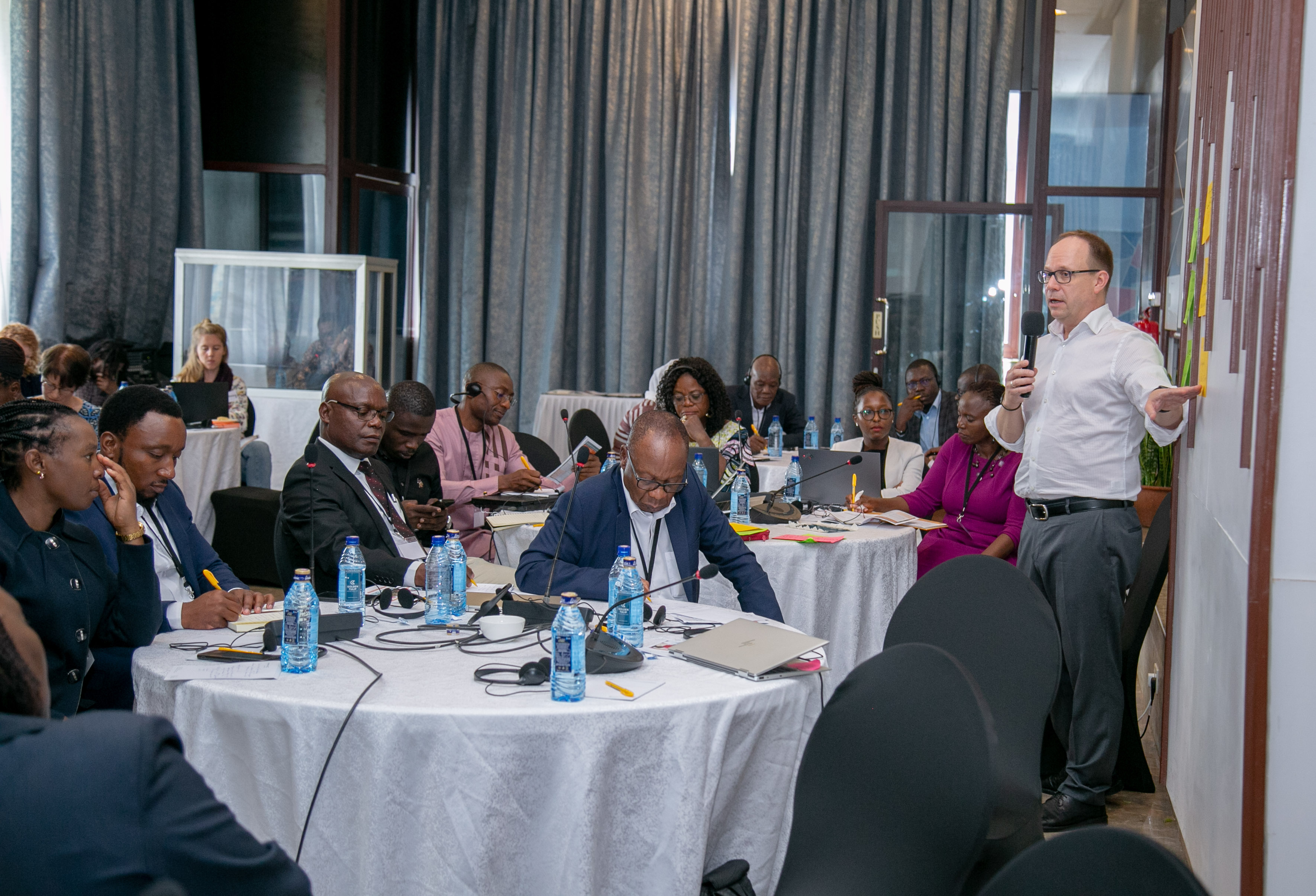
Participants during the workshop. Photo Credit: Dennis Mairu, Anchor Bay
A Joint Roadmap and Outlook for 2024
The exchange in Nairobi concluded with the formulation of a joint roadmap and action plan. The aim of the joint action plan is to lay the foundation for a decisive year 2024, which will be characterised by the 30th anniversary of the UNCCD in June and the sixteenth UNCCD Conference of the Parties (COP16) in December. In preparation for these milestones, TMG Research is endeavouring to refine and develop strategies together with all partners. This includes strengthening future cooperation between the various stakeholders and supporting civil society organisations to make the voices of those affected heard. This approach aims to bring the complex issue of land rights and the associated power dynamics into the discussion in order to reassess and rethink it.
 Urban Food FuturesFeb 09, 2026
Urban Food FuturesFeb 09, 2026Pushing the horizon: Urban farming and community-led innovation in Mukuru informal settlement
A small community-run greenhouse in Mukuru is offering insights into how controlled-environment agriculture can strengthen food security in urban environments under increasing pressure—and a look into the future of food systems in informal settlements.
Christian Sonntag, Emmanuel Atamba, Lumi Youm
 Land GovernanceDec 18, 2025
Land GovernanceDec 18, 2025Land tenure, women’s land rights, and resilience: Reflections from CRIC23 toward UNCCD COP17
Our experts discuss what the exchanges at CRIC23 highlighted and revealed about the role of secure and gender-equitable land tenure in the UNCCD's work ahead of the 2026 triple COP year.
Frederike Klümper, Washe Kazungu
 Urban Food FuturesDec 09, 2025
Urban Food FuturesDec 09, 2025The story of Mukuru's Urban Nutrition Hub
In Mukuru informal settlement, a safe haven for women has grown into the Urban Nutrition Hub, a multi-purpose space for nutrition education, training, and community development, demonstrating the potential of grassroots community-owned innovation..
Serah Kiragu-Wissler

